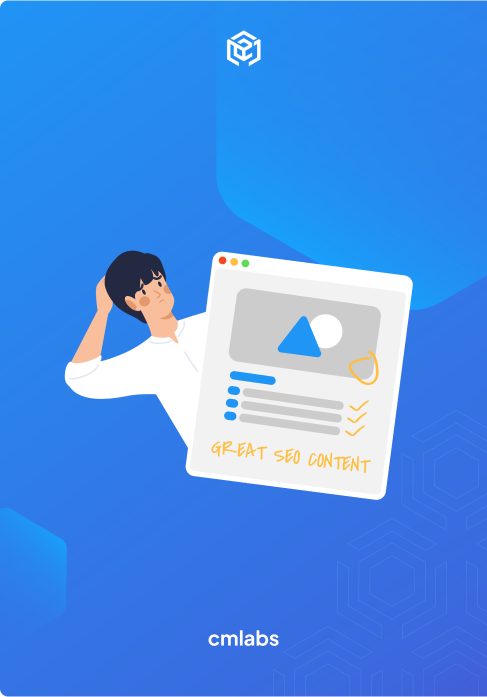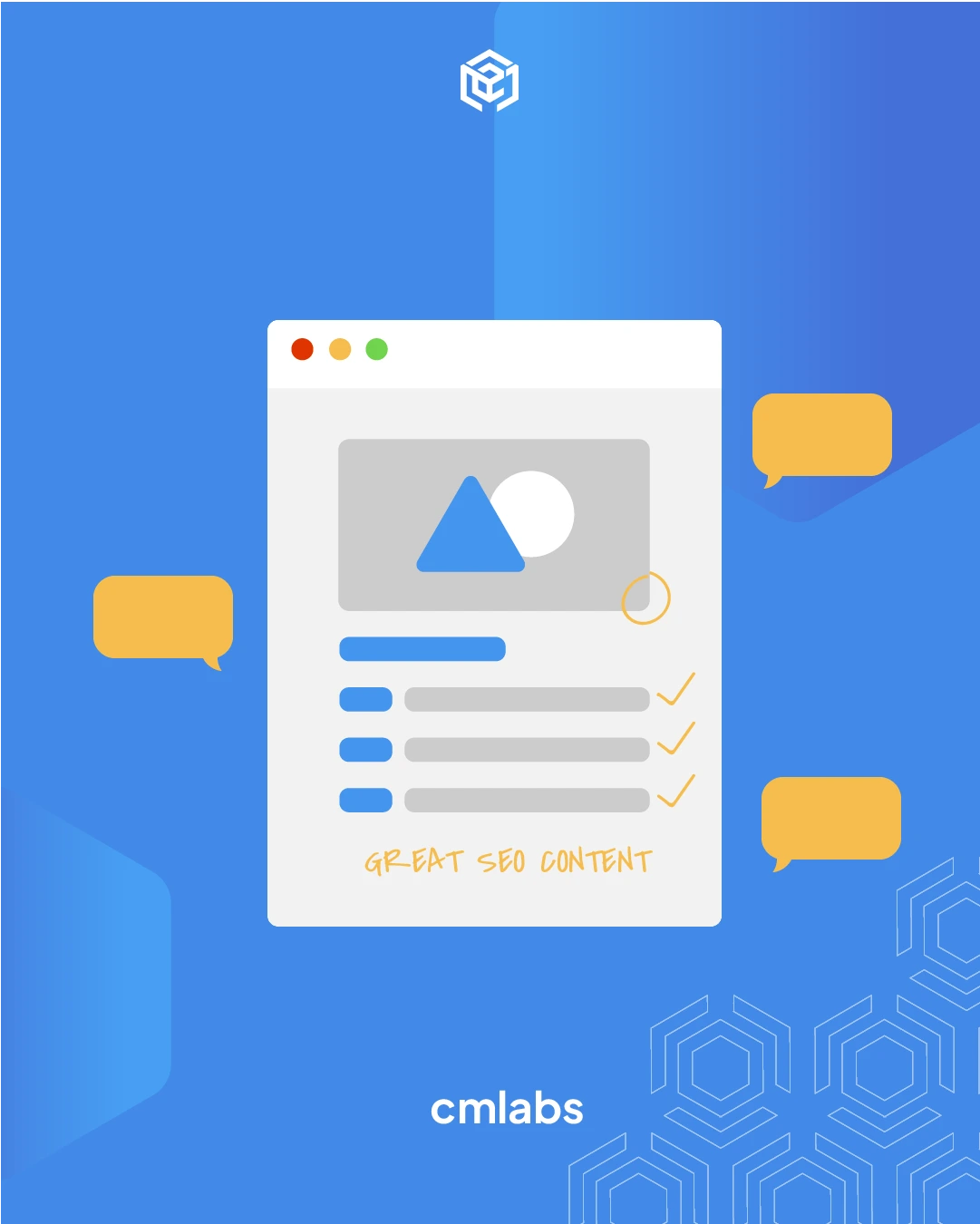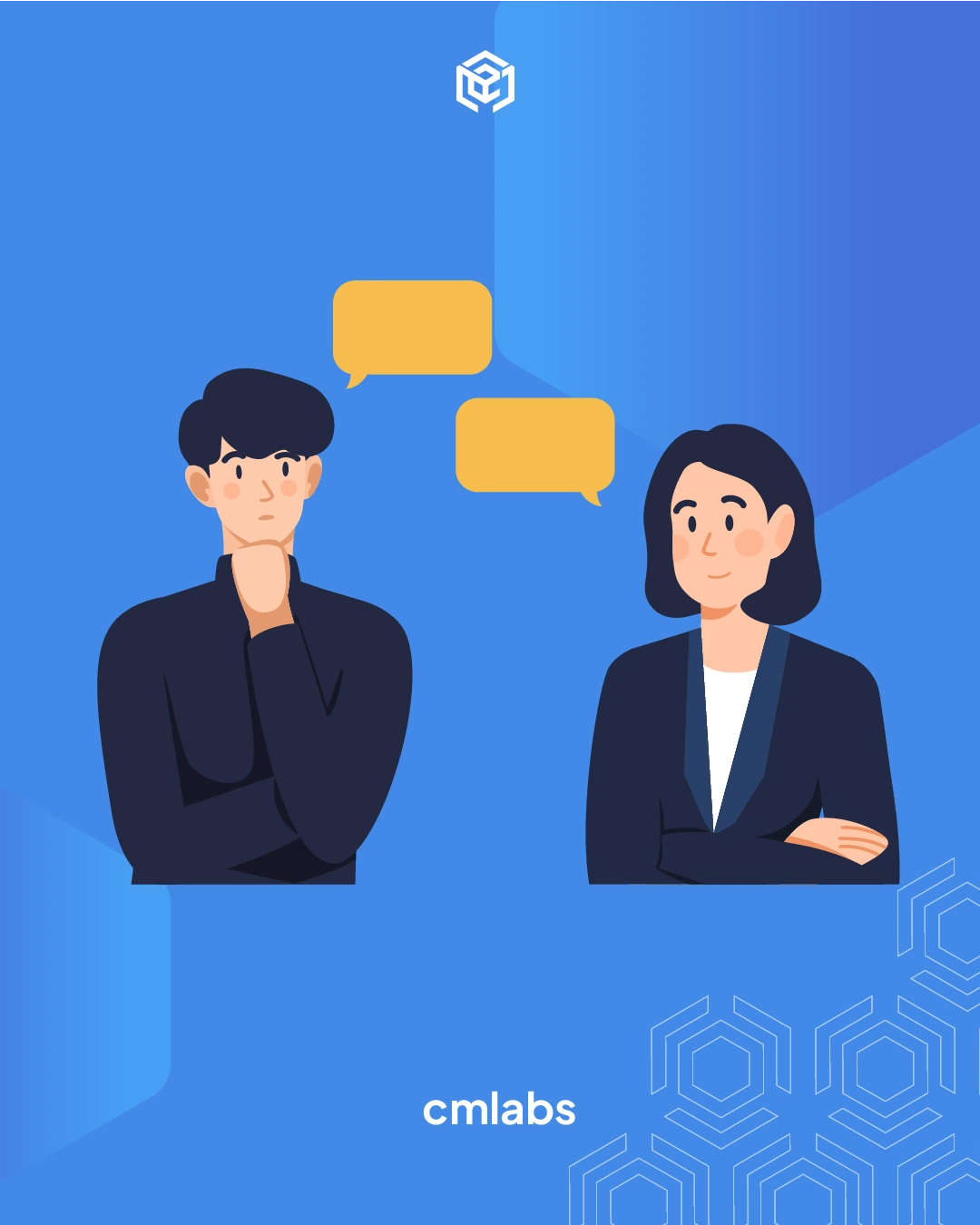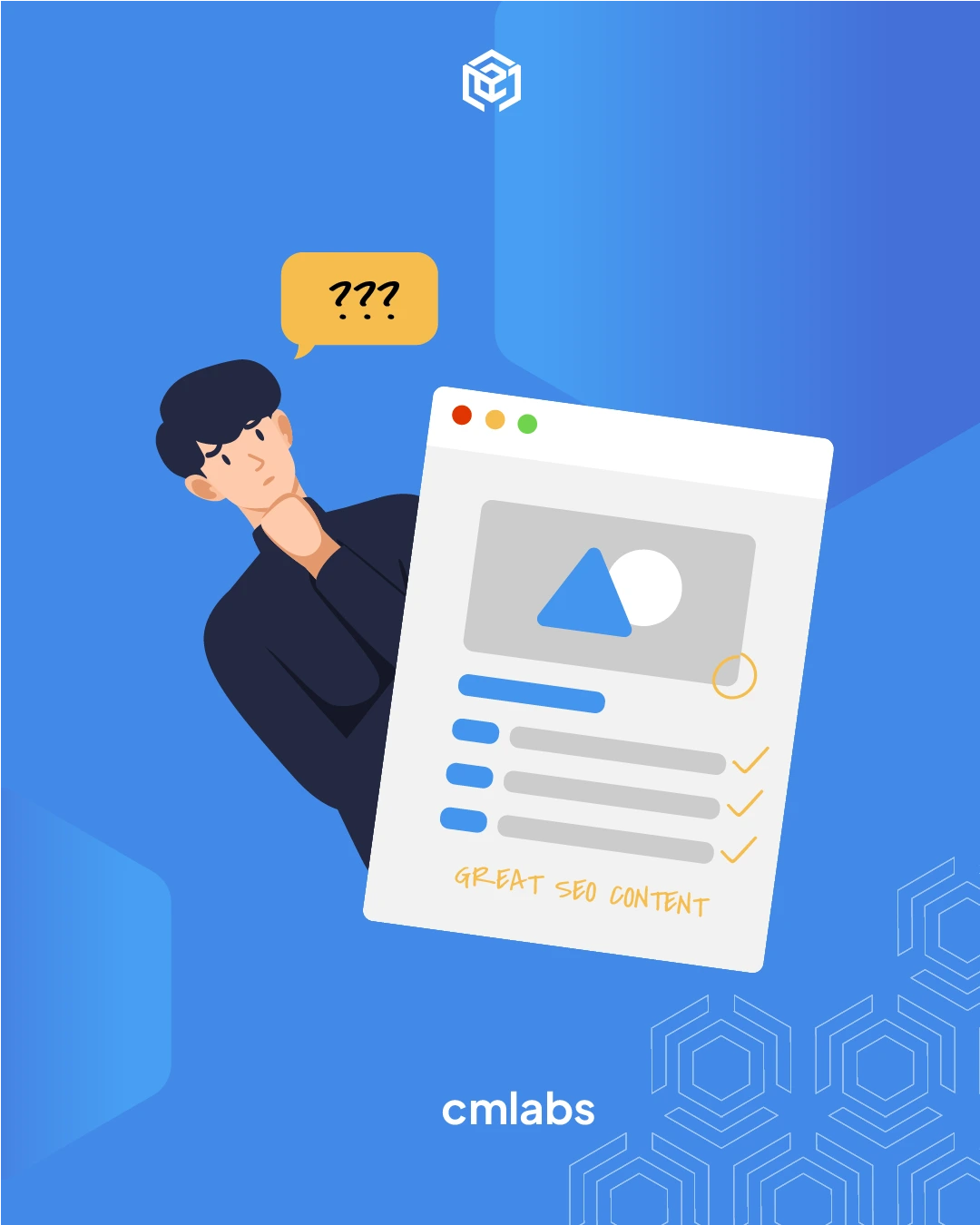We use cookies
This site uses cookies from cmlabs to deliver and enhance the quality of its services and to analyze traffic..
SEO SERVICES
Conduct in-depth technical website audits, strategically develop website projections, and increase your website authority.
ASO SERVICES
Elevate Your App’s Presence with Our Expert ASO Services – Boost Visibility and Drive Downloads!
WRITING SERVICES
We offer a variety of writing services to suit different business necessities. Reach broader audiences or lead specific industries? We've got you covered!
Get relevantly positive media exposure from bloggers and online publishers to increase your brand mentions on search engine results pages.
SEOlutions
A unified source of truth!
SEO & Digital Maternity Solution
SEO & Digital Maternity Solution: Leverage Cross-Platform Insights to Elevate Your Strategy with Expert Consultation
SEO & Digital Maternity Solution
Data Solution options:
Starting from Rp200 mio
Reinventing how a company get creative treatments
A new way to get your creative needs done. Agile team, efficient cost, and expedient way in a flexible yet scalable subscription plan!
Creative-as-a-Services
CaaS package options:
Based on Subscription
Pioneer in digital marketing software powerhouse
We’re excited to unveil our new range of Tech Solutions designed to drive your digital success. Whether you’re looking to enhance your website’s performance, streamline your tech stack, or unlock deeper insights from your data, we’ve got you covered.
Starting from Rp250 mio
Our Clients
Research and innovation center for digital transformation
Digital marketing combines technical skills and business knowledge at every stage. For marketing teams, improving budget management efficiency is crucial, as time is an invaluable resource that should be used wisely. At Sequence, we are dedicated to empowering you to optimize efficiency and strategic planning, ultimately enhancing the impact of your digital marketing efforts.
Subscription-based (IDR1,800/keyword)
Our Clients
BeyondSEO
References
SEO Tools for Webmasters
SEO Tools for Writers
SEO Tools
FIND THE SUITABLE PARTNERSHIP FOR YOUR COMPANY
Check out which cmlabs partnership program suits your company
WHITE LABEL SEO
for CorporateYour company is granted exclusive partnership rights to provide SEO services to our important clients, and we will provide a dedicated backend team to support your efforts.
AFFILIATE PROGRAM
for BizdevA new affiliate program is being introduced for skilled marketers and individuals with strong networks, offering commissions of up to 7% for generating profits independently.
DIGITAL AGENCY
for Marketing Partnerscmlabs is an essential partner for digital agencies, providing a unique selling proposition in Search Engine Optimization (SEO).
BACKLINK PARTNERSHIP
for Media / BloggerWe have a vast database of bloggers and media outlets across Indonesia, categorized by region and media type, giving our clients an edge in managing their media and SEO activities.
OFFICIAL TRAINING
We provide ongoing professional development and support to SEO professionals to ensure they are equipped to meet market demands.
JOIN AS CONTRIBUTOR
for Content WriterGreat opportunity for SEO Writers around the world. T&C applied!
ACADEMIC PARTNERSHIP
Through partnerships with universities in Indonesia, cmlabs has helped align academic curricula with industry demands.
Partnership
Sector & Industries
Tell us your SEO needs, our marketing team will help you find the best solution
As an alternative, you can schedule a conference call with our team
Schedule a Meeting?Contact
Survey
We use cookies
This site uses cookies from cmlabs to deliver and enhance the quality of its services and to analyze traffic..
Last updated: Dec 01, 2022
Disclaimer: Our team is constantly compiling and adding new terms that are known throughout the SEO community and Google terminology. You may be sent through SEO Terms in cmlabs.co from third parties or links. Such external links are not investigated, or checked for accuracy and reliability by us. We do not assume responsibility for the accuracy or reliability of any information offered by third-party websites.
Pogo Sticking is a term in SEO that is used to describe a situation where a user cannot find an answer from a website page that is displayed in the SERP. It is a situation that is monitored by Google and can cause your website to be penalized if it continues.
For example, you type the search query "SEO guide" in the search field. But the results shown at the top do not answer your question. Next, you close the page to find the information you are looking for on another website.
By leaving the page quickly, then returning to the SERP, you have done an activity known as "Pogo Sticking." This indicates that the top-ranking pages are not credible and relevant to the search query.
There are several factors or causes for the phenomenon that causes users to close a page quickly. It's important to note that this situation isn't always caused by bad content or user experience. However, these two aspects also tend to be the root of the problem.
There are two kinds of causes related to this issue, namely the content and the technical side of the website page itself. The issues related to content include:
On the other hand, there are several reasons that cause this phenomenon that are not related to content, such as:
This pogo-sticking situation appears to be similar to that of bounce rate at first glance. However, both are distinct in terms of definition and causes. Here's the description:
Pogo Sticking | Bounce Rate |
| Click on the page but return to the SERP again | Percentage of visitors that visit a page |
| Bad impact on website credibility | It does not necessarily affect badly on SEO |
| Content is marked as irrelevant to the query | Website visitors only spend a short time reading a page |
The issue of users visiting each page looking for answers in the SERP is not too serious. However, if this happens continuously, page ranking will decrease, which will make Google re-examine the credibility of your website.
In order to avoid this problem, you can apply the following methods:
Most users want to find information easily and quickly. Therefore, provide a table of contents on pages that have many sub-chapters. With this table, users can read at a glance and sort out which points are the focus of their search.
In addition to displaying the table of contents in a neat format, adding internal links is also needed to prevent users from returning to the search page. Having links that point to other pages on the website can make users curious and interested in reading your content further.
Expertise, Authoritativeness, and Trustworthiness, or E-A-T, are aspects that are upheld in content creation. This concept prioritizes user convenience in digesting information rather than fulfilling requests for increased ranking on Google's SERP.
The application of E-A-T can be started by presenting quality content. In other words, you need to create content written by experts in the field. Then, the content must reflect the reputation of the website itself, which will guarantee brand credibility to users in the SERP.
Apart from publishing high-quality and SEO-friendly articles, you also need to update the information in old content. By providing new information, you can grab user attention and increase organic traffic on pages that have updated content.
WDYT, you like my article?
Tell us your SEO needs, our marketing team will help you find the best solution
As an alternative, you can schedule a conference call with our team
Schedule a Meeting?



cmlabs Jakarta Jl. Pluit Kencana Raya No.63, Pluit, Penjaringan, Jakarta Utara, DKI Jakarta, 14450, Indonesia
(+62) 21-666-04470These strategic alliances allow us to offer our clients a wider range of SEO innovative solutions and exceptional service.

Psst! Hey there, SEO Stats and Tools SEO company! If you've ever planned of conquering the Indonesia market, you've come to the right place!